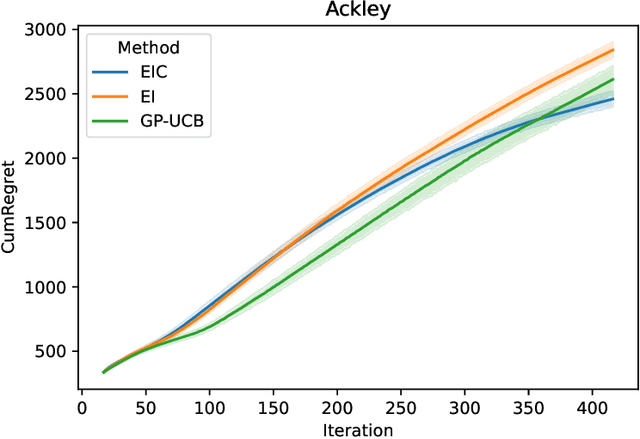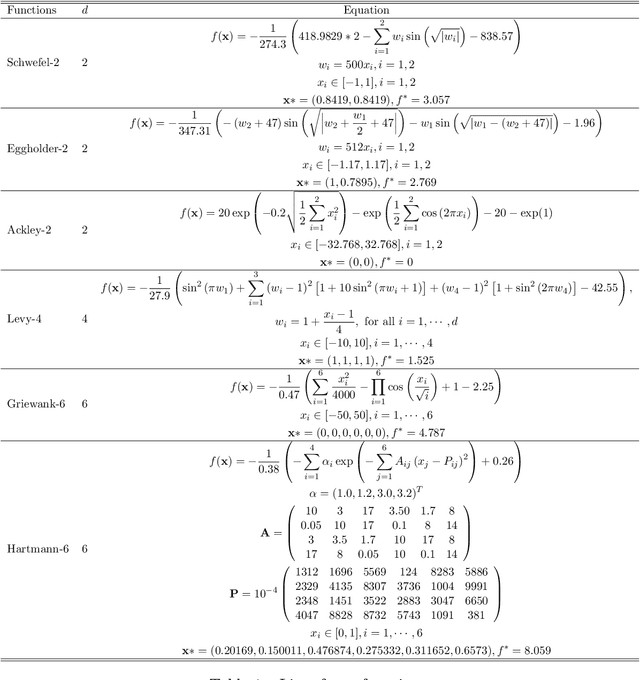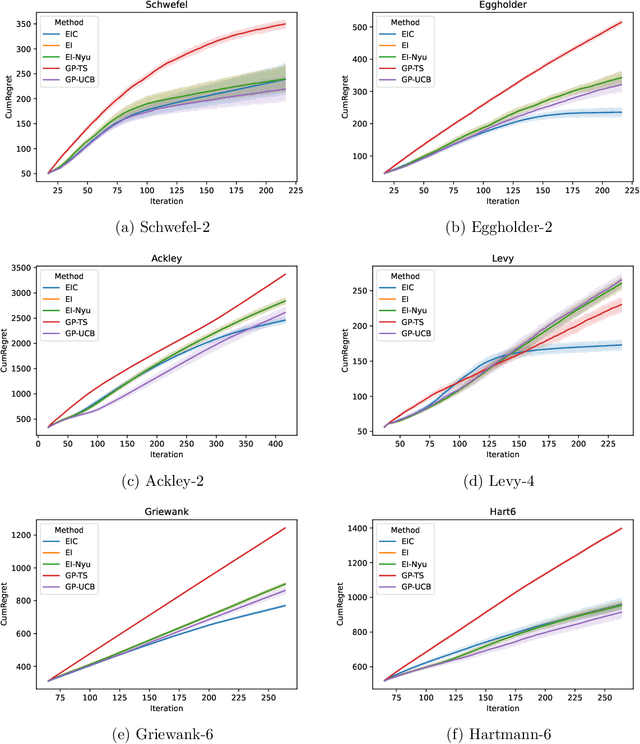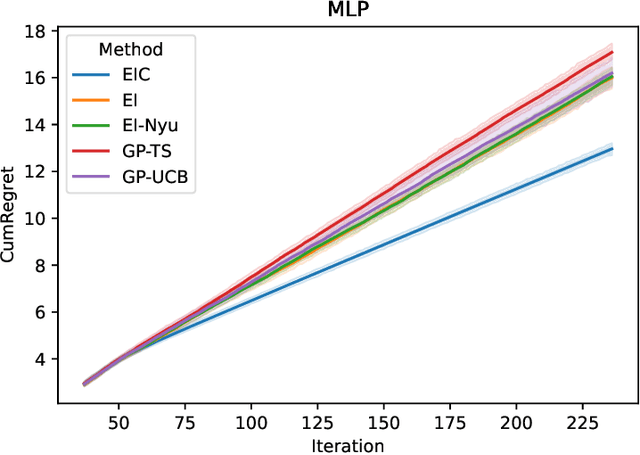Adjusted Expected Improvement for Cumulative Regret Minimization in Noisy Bayesian Optimization
Paper and Code
May 24, 2022



The expected improvement (EI) is one of the most popular acquisition functions for Bayesian optimization (BO) and has demonstrated good empirical performances in many applications for the minimization of simple regret. However, under the evaluation metric of cumulative regret, the performance of EI may not be competitive, and its existing theoretical regret upper bound still has room for improvement. To adapt the EI for better performance under cumulative regret, we introduce a novel quantity called the evaluation cost which is compared against the acquisition function, and with this, develop the expected improvement-cost (EIC) algorithm. In each iteration of EIC, a new point with the largest acquisition function value is sampled, only if that value exceeds its evaluation cost. If none meets this criteria, the current best point is resampled. This evaluation cost quantifies the potential downside of sampling a point, which is important under the cumulative regret metric as the objective function value in every iteration affects the performance measure. We further establish in theory a tight regret upper bound of EIC for the squared-exponential covariance kernel under mild regularity conditions, and perform experiments to illustrate the improvement of EIC over several popular BO algorithms.
 Add to Chrome
Add to Chrome Add to Firefox
Add to Firefox Add to Edge
Add to Edge